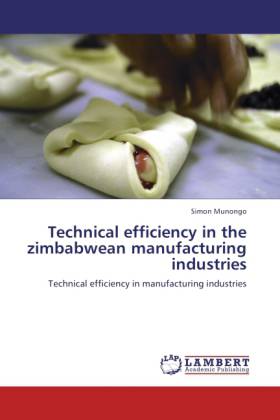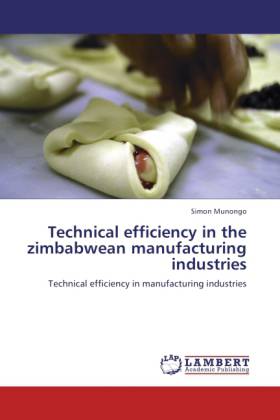
Je cadeautjes zeker op tijd in huis hebben voor de feestdagen? Kom langs in onze winkels en vind het perfecte geschenk!
- Afhalen na 1 uur in een winkel met voorraad
- Gratis thuislevering in België vanaf € 30
- Ruim aanbod met 7 miljoen producten
Je cadeautjes zeker op tijd in huis hebben voor de feestdagen? Kom langs in onze winkels en vind het perfecte geschenk!
- Afhalen na 1 uur in een winkel met voorraad
- Gratis thuislevering in België vanaf € 30
- Ruim aanbod met 7 miljoen producten
Zoeken
Technical efficiency in the zimbabwean manufacturing industries
Technical efficiency in manufacturing industries
Simon Munongo
Paperback | Engels
€ 64,45
+ 128 punten
Omschrijving
This study investigates the efficiency of manufacturing subsectors in the Zimbabwean economy. The study applied the panel data econometrics approach in the leading manufacturing subsectors from 1980-2005. The quantitative estimates using SFA shows that there are varying efficiencies across sub-sectors and through time. The log-likelihood test shows that there existed technical inefficiency in the production processes in the manufacturing sector. This shows that the industries could have improve their productive capacities with the same amount of inputs. The study shows that average technical efficiencies were falling since 1980 in the investigated sub-sectors. The highest efficiency scores were recorded in the canning and preservation of vegetables and fruits sub-sector which have an average of 98.1 percent efficiency level. The least efficient sectors are the textiles and footwear sectors which had averages of 32 percent and 33 percent efficient levels.
Specificaties
Betrokkenen
- Auteur(s):
- Uitgeverij:
Inhoud
- Aantal bladzijden:
- 80
- Taal:
- Engels
Eigenschappen
- Productcode (EAN):
- 9783846520895
- Verschijningsdatum:
- 5/10/2011
- Uitvoering:
- Paperback
- Afmetingen:
- 152 mm x 229 mm
- Gewicht:
- 127 g

Alleen bij Standaard Boekhandel
+ 128 punten op je klantenkaart van Standaard Boekhandel
Beoordelingen
We publiceren alleen reviews die voldoen aan de voorwaarden voor reviews. Bekijk onze voorwaarden voor reviews.









